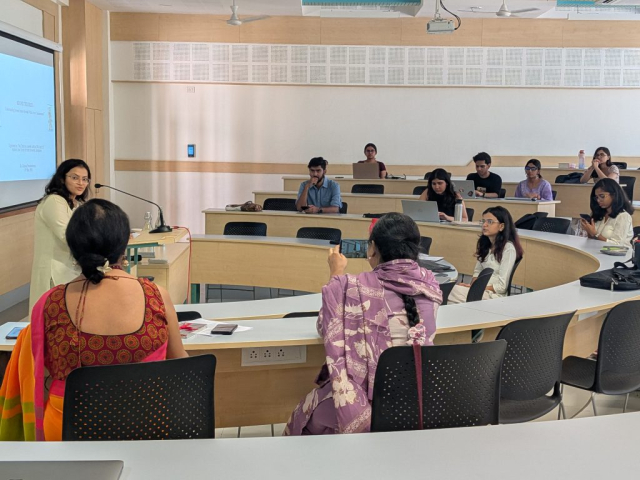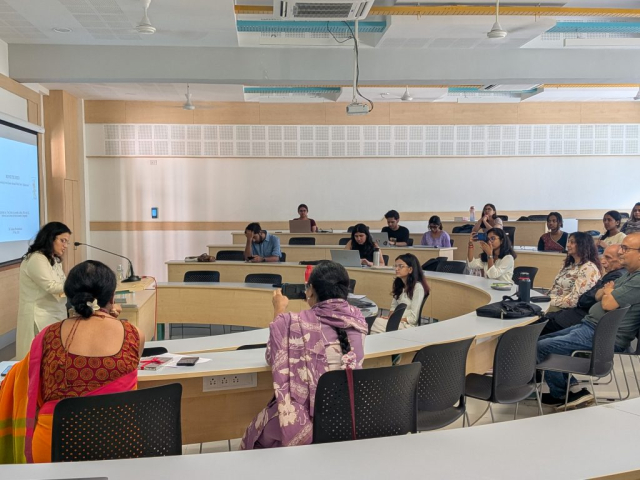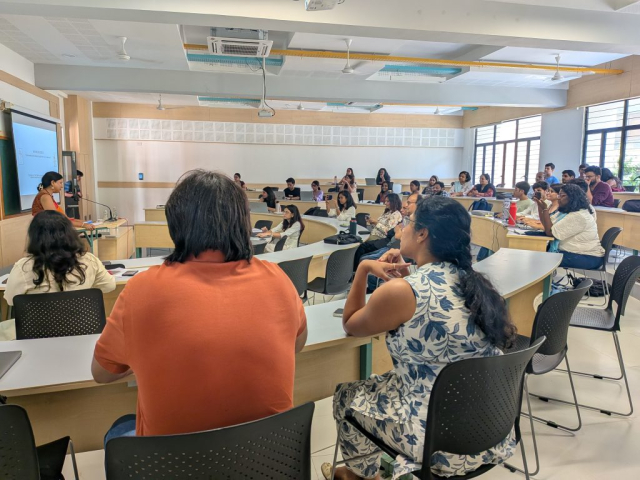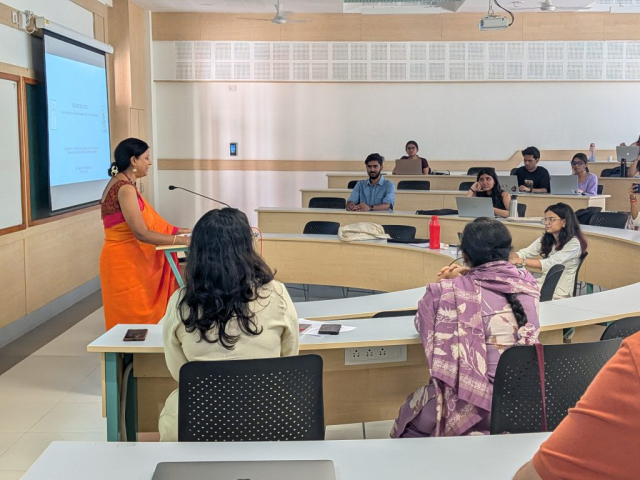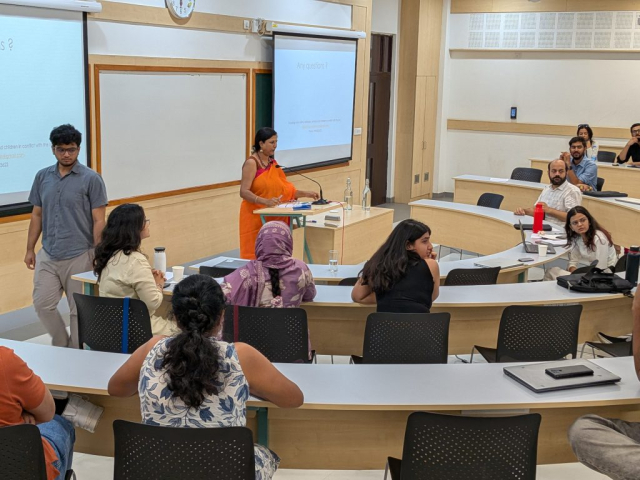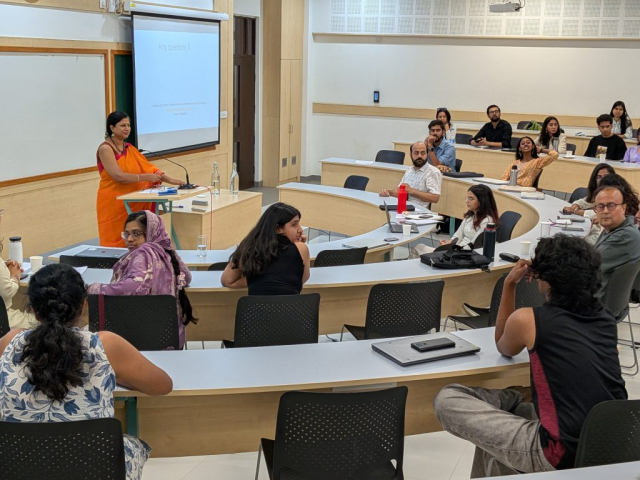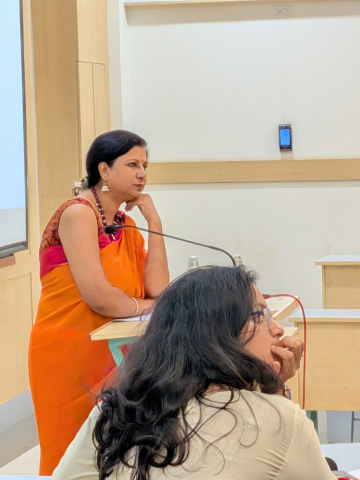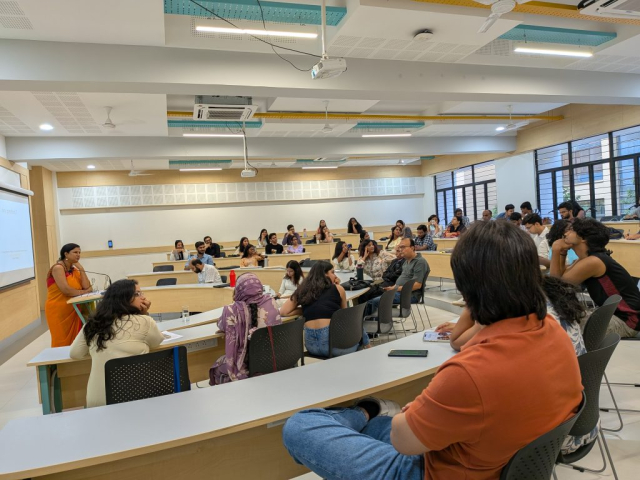Beyond the Screen: Understanding Juvenile Justice Through ‘Adolescence’ | By The Chair on Juvenile Justice, SIPLA and LSC
NAB 101, NLSIU
If you’re interested in attending, RSVP here.
Wednesday, May 14, 2025, 4:00 pm
Open to the public.
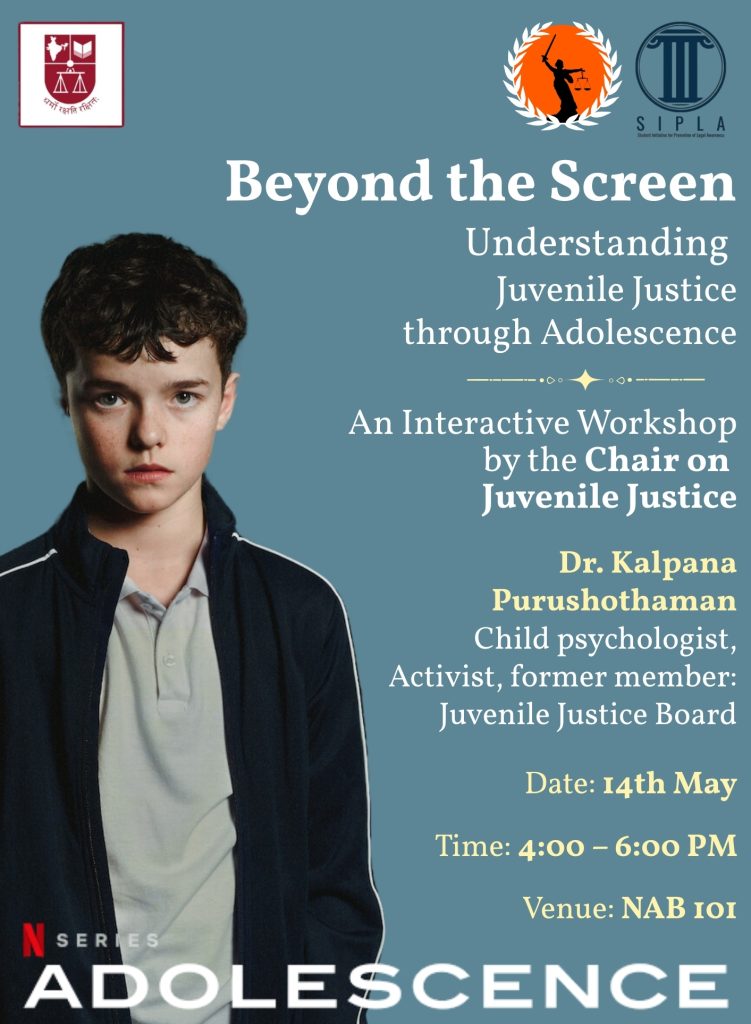 The Chair on Juvenile Justice at NLSIU, in collaboration with Student Initiative for Promotion of Legal Awareness (SIPLA) and the Legal Services Clinic, is pleased to invite you to an interactive and reflective workshop based on the Netflix series ‘Adolescence.’
The Chair on Juvenile Justice at NLSIU, in collaboration with Student Initiative for Promotion of Legal Awareness (SIPLA) and the Legal Services Clinic, is pleased to invite you to an interactive and reflective workshop based on the Netflix series ‘Adolescence.’
The session will be mediated by Dr. Kalpana Purushothaman, Professor, Psychologist, and Former Member of Juvenile Justice Board, Bangalore (Urban).
About the Session
Through this workshop, we aim to explore the juvenile justice system in India and delve into the complex realities of growing up in an era marked by social media saturation, digital overload, and emotional disconnect. While some may frame this as a generational divide—Gen Z vs. Millennials—the deeper truth is that the world around us has changed. The conflicts between our inner and outer worlds are real, and each of us is struggling to navigate this shift.
Using Adolescence as a lens, this session will serve as a space for dialogue, reflection, and deeper understanding of these critical issues.
Across different segments of the session, we will trace the journey of a child in conflict with law through the juvenile justice system. We begin with their entry into the system, looking at apprehension procedures, the role of the police, and access to legal aid. From there, we examine the realities of gendered bullying, the influence of social institutions, how victims and offenders are perceived, and the growing mental health challenges adolescents face in the age of social media. We also explore their interactions with psychologists, the preliminary assessments conducted under Section 15 of the Juvenile Justice (Care and Protection of Children) Act 2015. Finally, we delve into the triggers behind juvenile offences, including adverse childhood experiences and the broader social factors that influence adolescent behaviour.
Excerpts from the Session
Dr. Kalpana Purushothaman began the session with the intention to help bridge the gaps between the world of law, the world of psychology and the world of children. Using the series as a starting point, she delved into what the justice system really looks like in the State/country, and the on-ground realities that are dealt with on a day-to-day basis.
On the importance of language: She stressed on the importance of semantics and the language used with a child in conflict with the law, an aspect that is also emphasised upon in the Juvenile Justice Act. She shared findings of data where upon entering the Juvenile Justice system, it was found that children in conflict with law feel ‘fear’ as the strongest emotion, be it fear of sexual abuse, or of violence. “Children in conflict with the law have the right to remain silent if they wish to and an answer need not be coerced or forced out of them by influence or fear through harsh language. What also needs to be avoided by any member of the JJ system is the labelling of these children in any manner,” she noted.
On awareness of rights: Dr. Kalpana highlighted the point that the child in conflict with the law is being informed of his rights at every point during the web series. However, she mentioned that on the ground, rights are sometimes treated “almost like a bad word.” “A huge difference I can see in the system here and the web series is that of solitary confinement of the child (which is shown in the web series). In the JJ system here in the State, the children interact with various members in the system at every stage which is a very important factor. Depriving a child of social interactions is like punishment even before the punishment actually begins,” she said.
On the quality of lawyering: Using the example of the lawyer in the series who ensures the child is aware of his rights and also his right to remain silent, Dr. Kalpana drew focus on the quality of lawyering in the system, and the impact it can have while dealing with cases pertaining to children in conflict with the law. She said that the JJ system was built with certain checks and balances in place so that no one should be above questioning, and the lawyers involved in the system need to ensure that this is followed.
On policing & counsellors: The session looked at the crucial role the thoroughness of the police investigation can play in such cases. “In the series, we see how thorough the documentation of evidence is. There is no violence, no voices raised and no threats thrown at the child. Instead, material evidence is produced even before the investigation begins. However, in reality, it takes much longer to produce any kind of documentation required for a case,” she said. The session also discussed the role of Psychologists and Counsellors in the JJ system, and the significant role that Adverse Childhood Experiences (ACEs) play in several cases dealing with children in conflict with the law. “Our research showed that several children in conflict with the law had experienced an average of 12 ACEs during their childhood,” she said.


